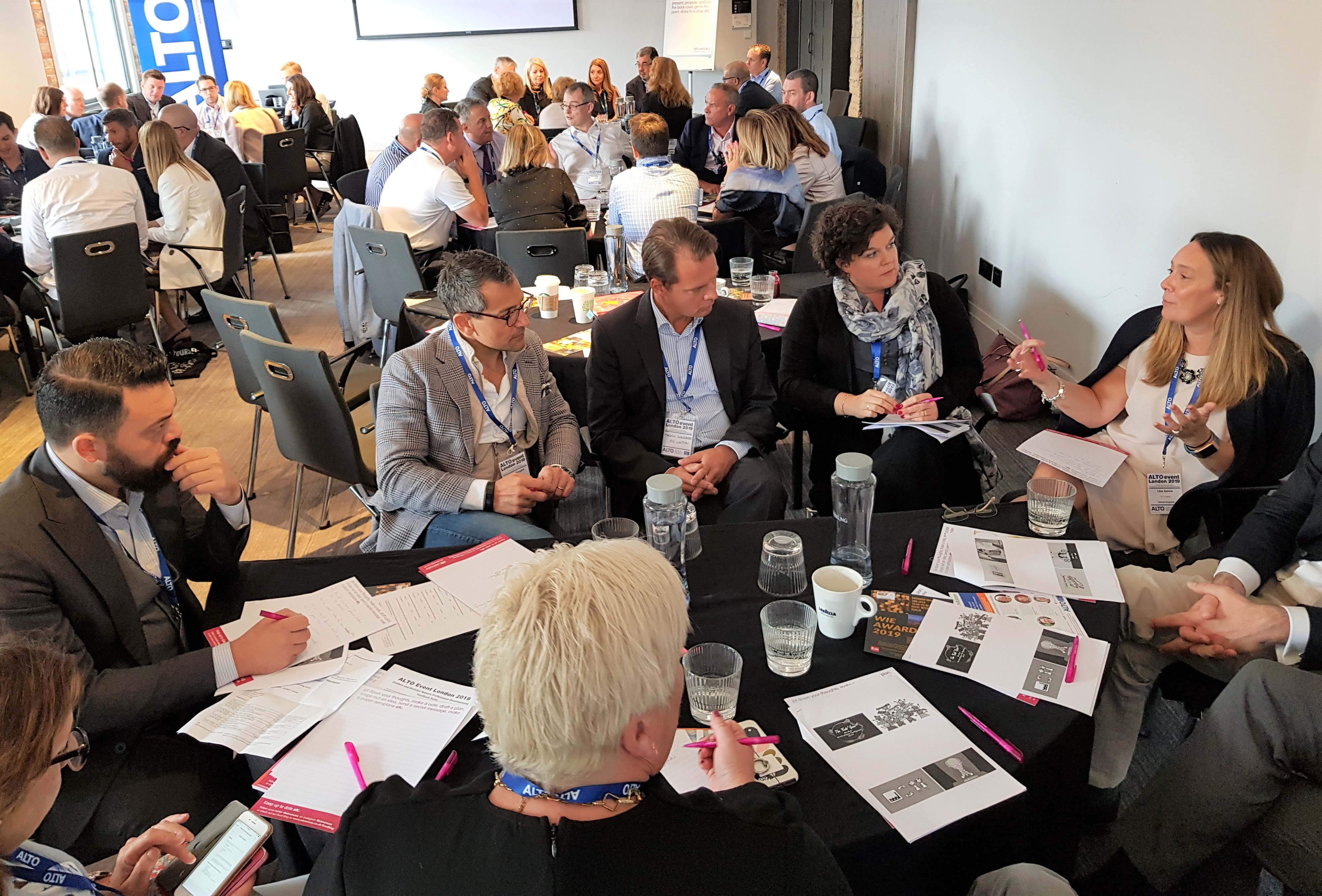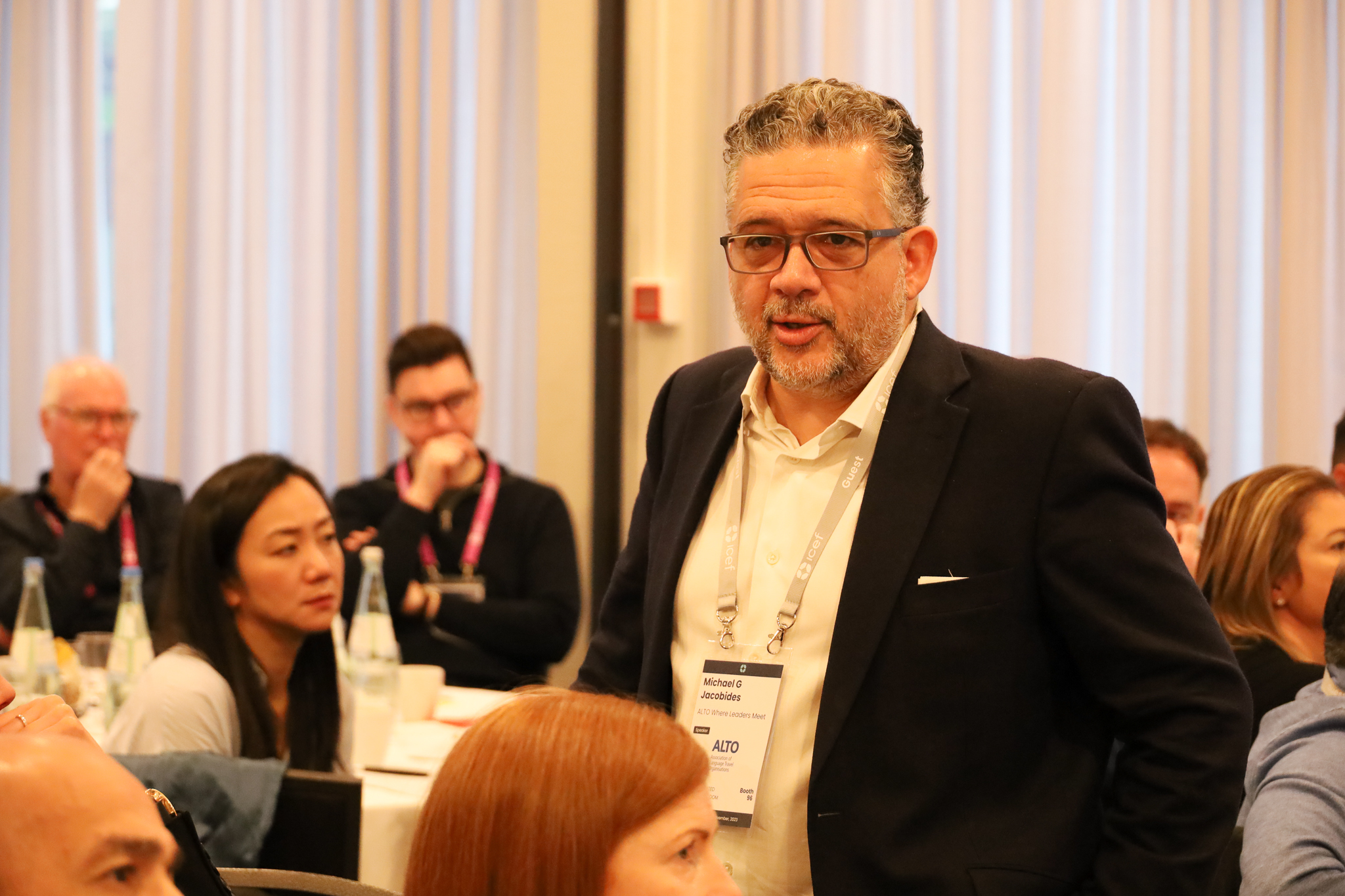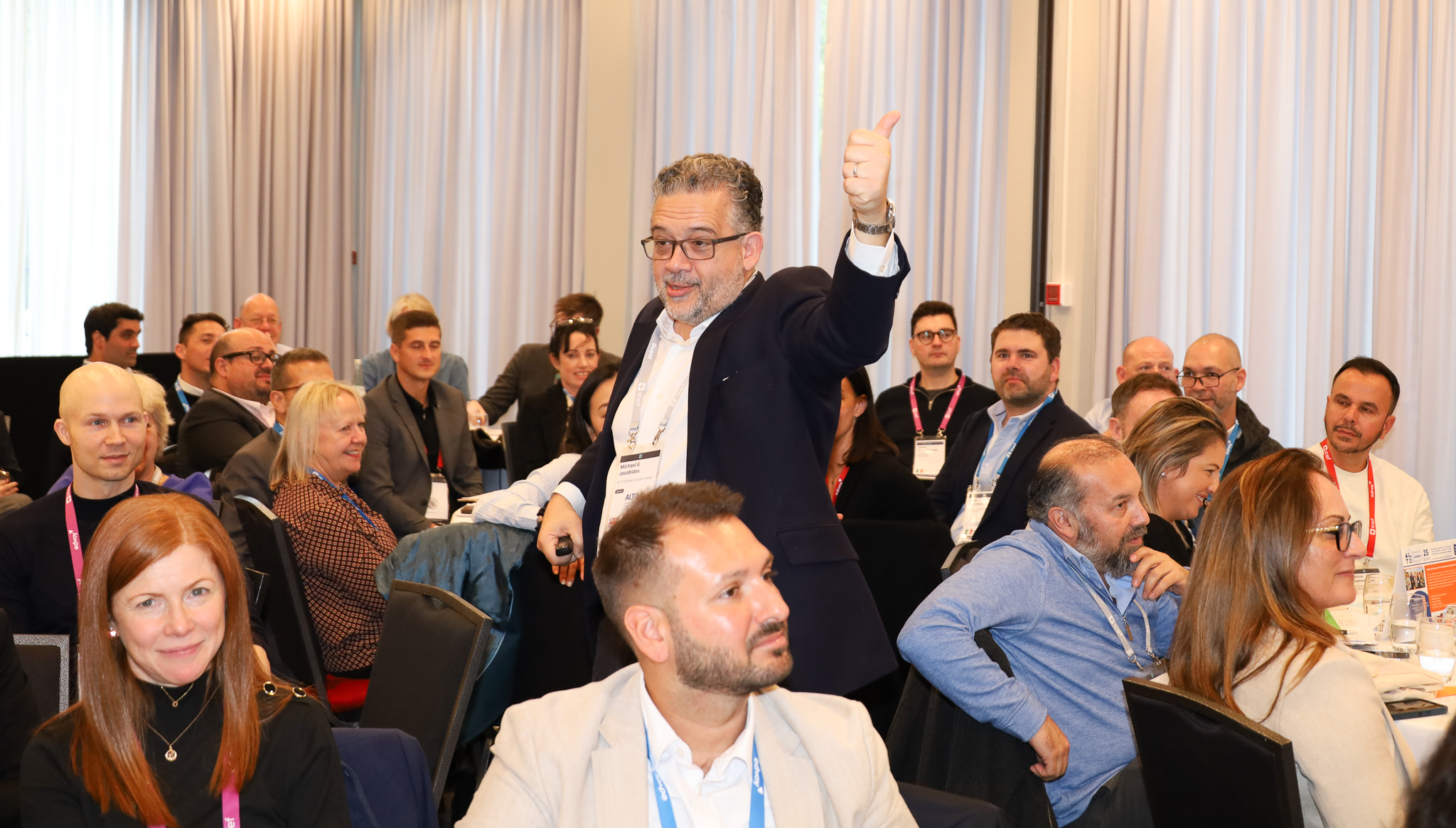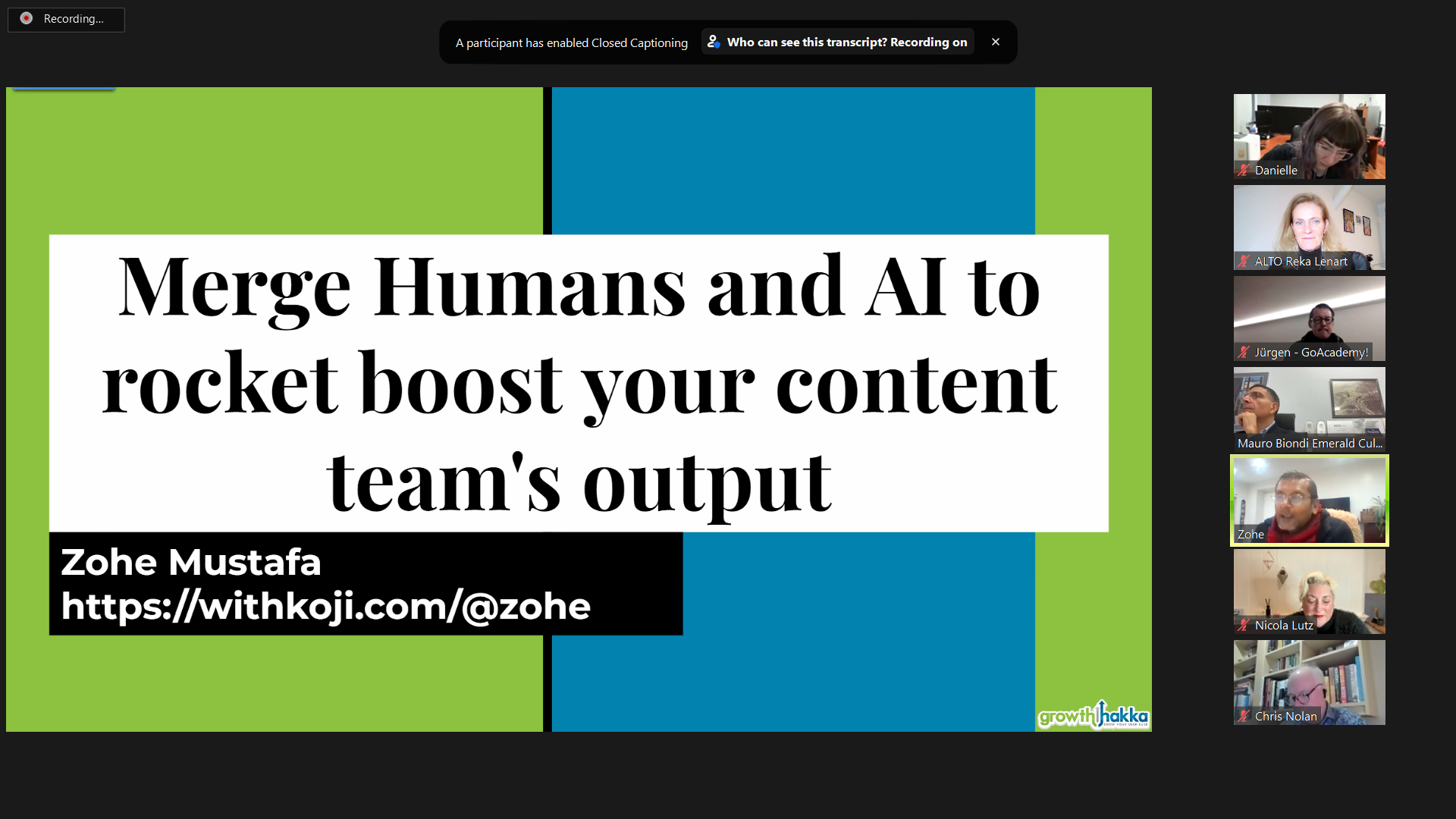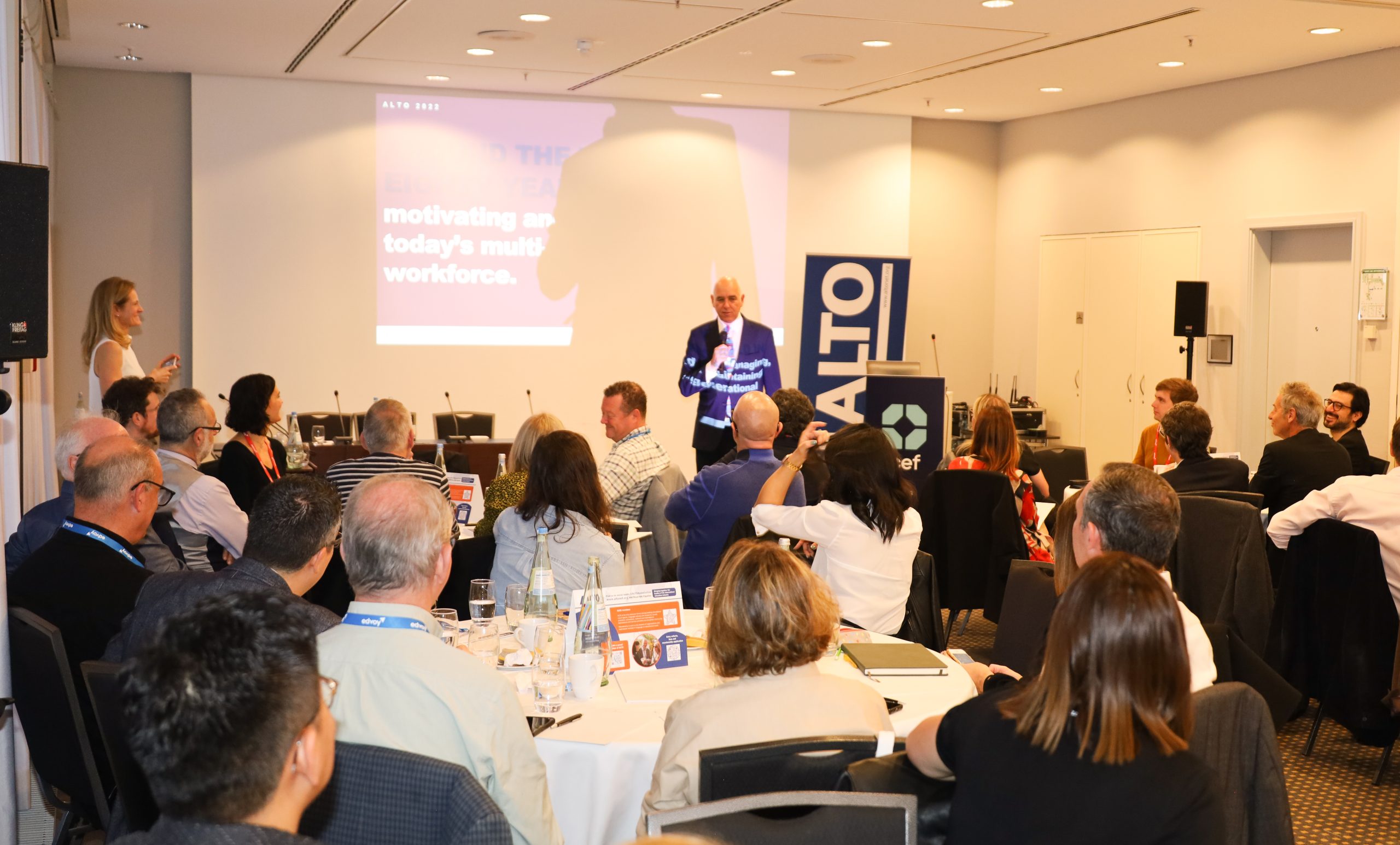The Monday between Alphe UK and StudyWorld has been engraved in ALTO members’ minds as one of the full day professional development and networking events we organise annually. It has become a tradition since 2011 to allow most of our members to attend without having to take additional trips. With the majority of the language and educational travel industry in town, we had a good turn- out of 70 leaders, all ready to learn about The “Ends” Game: Technology and the Pursuit of Lean Commerce by Marco Bertini.
Marco completed his doctorate at the Harvard Business school, was a Professor of Marketing at the London Business School before joining ESADE in Barcelona. Recently, Marco was named to the Thinkers50 Radar, a shortlist of the scholars “most likely to shape the future of how organisations are managed and led.”
As well as the fantastic credentials, Marco presented to our members many years ago (Pricing for Profit) and received top scores, so we invited him to talk about his upcoming book. Of course, nothing will replace you being there, but he summarised the main thoughts from the session below:

Firms seldom think about their customers when it comes to creating financial value—they focus on costs, risk tolerance, etc. Nowhere is this more visible than the very nature of the exchange between the firm and its customers
Customers derive value from products and services when they solve a problem; firms derive value when they pass on ownership (when they sell off whatever it is they produce). These two are not the same!!
This misalignment makes the trade inefficient: some customers decide not to enter the market, some customers purchase something that they don’t end up using sufficiently, other customers purchase something that doesn’t quite solve the problem, etc.

Firms should think about moving away selling stuff, as resolving these inefficiencies broadens access and increases willingness to pay. Importantly, recent technological advances have brought in unprecedented transparency, and with this transparency comes a great push for accountability. So, if firms don’t think about employing better metrics, someone else will (a competitor, a start-up, etc.)
The most alignment occurs when customers and firms derive value when the latter’s problems are solved. But in between there are other, more efficient metrics. The sequence is: ownership → time → usage → outcomes → value. A time-based exchange eases access problems. A usage-based exchange eases access and consumption problems. Finally, an outcome- or even value-based exchange eases access, consumption, and performance problems.

In order to move forward, firms need to work on at least these dimensions:
○ You must have the uncomfortable question about outcomes, and when/how do our offerings really benefit customers
○ You must collect data along a new, third dimension. Before it was all about needs and wants, and about journeys. Now there is that plus impact data: information about when and how customers consume, and what benefit comes from that consumption
○ Make sure that customers are collaborating to create quality outcomes (you do this via incentives, contracts, gamification, …)
○ Put in place a transition plan. Will you progress across different exchange modes, or will you run more than one at the same time?
Participants left energised and with a lot of food for thought, as Marco asked them to put what they’d learnt into practice straight away, working is small groups.
If you missed this session, please plan ahead and join us at the ALTO Day Berlin 2019 event on 3rd November!

